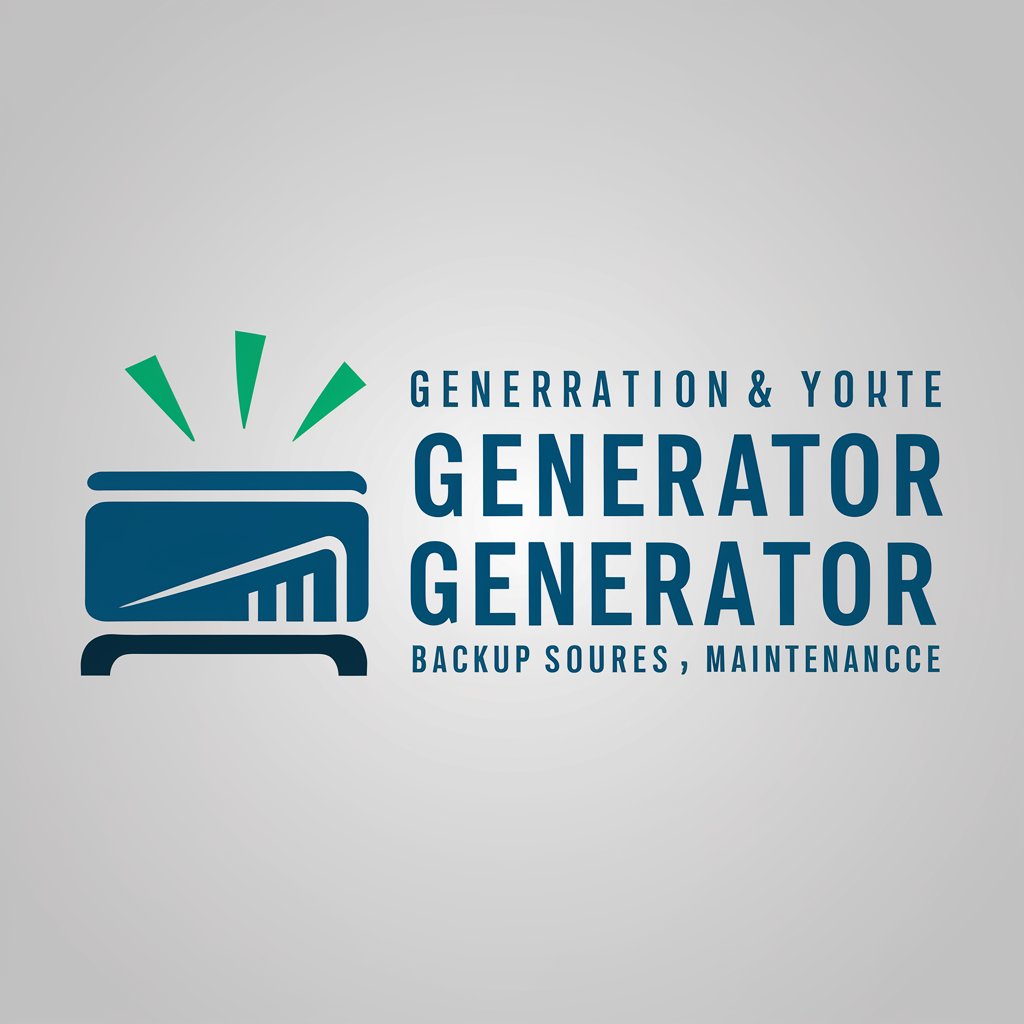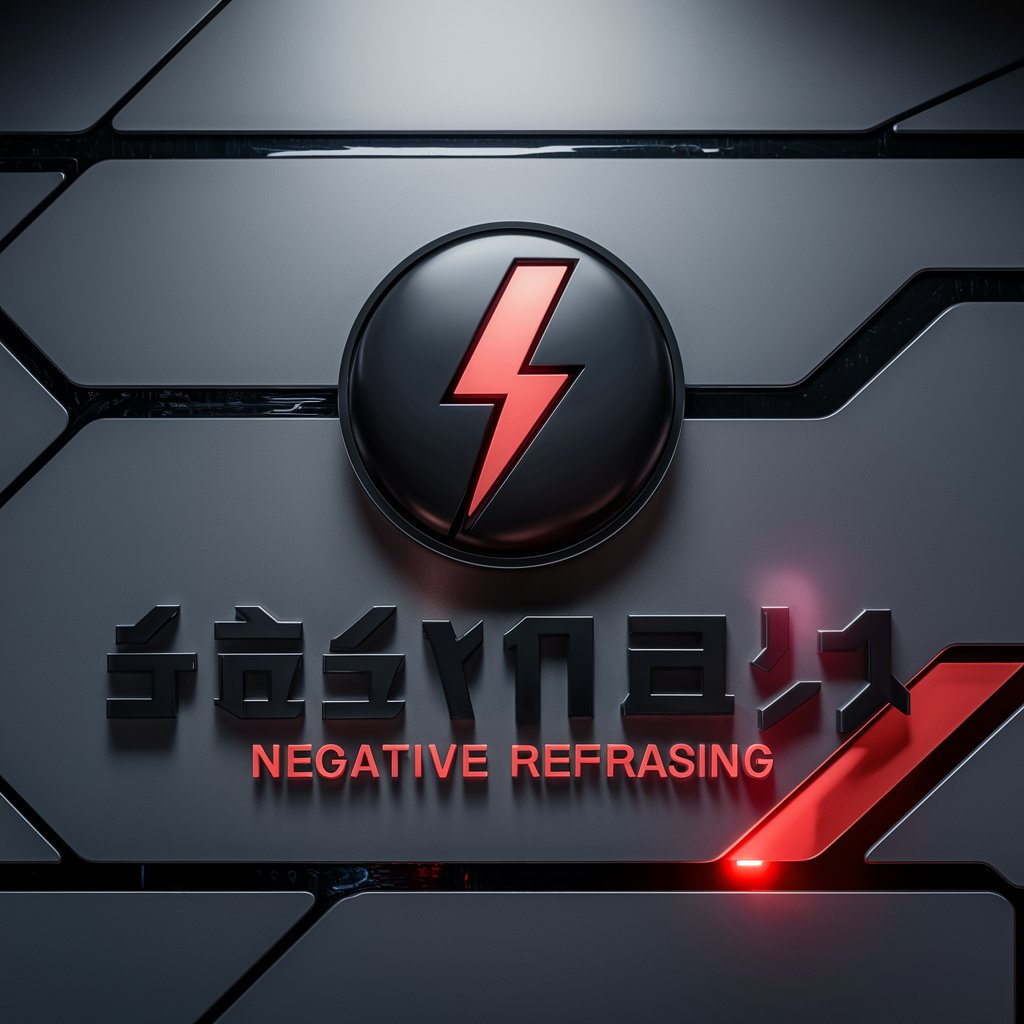Generators - User-Friendly Generator Guide

Welcome! Let's talk about generators and backup power solutions.
Powering Your Needs with AI Assistance
Can you explain the different types of generators available for home use?
What are the key maintenance tips for keeping a generator in good condition?
How do backup power sources work during a power outage?
What safety precautions should be taken when using a generator?
Get Embed Code
Introduction to Generators
Generators are devices designed to convert mechanical energy into electrical energy, serving as a backup power source during outages or in areas without access to the power grid. Their basic function hinges on the principle of electromagnetic induction, where a conductor moving through a magnetic field generates an electric current. Generators come in various sizes and types, including portable units for small-scale applications and large standby generators for residential or commercial buildings. Examples of scenarios where generators prove essential include providing emergency power for hospitals during blackouts, powering tools at construction sites without electrical service, and offering a portable power source for outdoor events or disaster relief operations. Powered by ChatGPT-4o。

Main Functions of Generators
Emergency Power Supply
Example
Hospitals use standby generators to maintain life-saving equipment during power outages.
Scenario
During a city-wide blackout, a hospital's standby generator automatically starts up to ensure uninterrupted power supply to critical areas such as the intensive care unit and emergency rooms.
Portable Power Source
Example
Campers use portable generators to power small appliances while camping in remote locations.
Scenario
A group of campers in a remote forest area uses a portable generator to power lights, charge mobile phones, and operate a small refrigerator for the duration of their camping trip.
Supplemental Power for Renewable Energy Systems
Example
Homeowners with solar panels may use a backup generator on cloudy days or during maintenance.
Scenario
A homeowner with a solar-powered home uses a backup generator to provide power during a week of heavy cloud cover when the solar panels cannot generate enough electricity to meet the home's energy needs.
Power for Construction and Outdoor Events
Example
Construction sites without grid access use generators to power tools and machinery.
Scenario
On a remote construction site, a large diesel generator provides power to heavy machinery, lighting, and the site office, ensuring work can continue even without access to the municipal power grid.
Ideal Users of Generators
Homeowners
Homeowners living in areas prone to natural disasters or frequent power outages benefit from standby or portable generators, ensuring their home's essential systems remain operational during blackouts.
Business Owners and Facility Managers
Businesses that require uninterrupted power to maintain operations, such as data centers, hospitals, and manufacturing facilities, rely on standby generators to prevent downtime and protect critical data and equipment.
Outdoor Enthusiasts
Campers, RVers, and tailgaters use portable generators to power appliances and entertainment systems, enhancing their outdoor experiences in locations without electrical infrastructure.
Construction and Event Planners
Professionals in construction, event planning, and emergency management depend on generators to supply power where grid access is unavailable or insufficient, ensuring projects and events proceed smoothly.

How to Use Generators
Start Your Journey
Initiate your experience by exploring yeschat.ai, where you can access a free trial seamlessly without the need to log in or subscribe to ChatGPT Plus.
Identify Your Needs
Determine the specific type of information or assistance you require. Generators can offer support ranging from academic writing to power source guidance.
Choose the Right Generator
Select the generator category that best suits your needs, considering factors such as power output, portability, and fuel type for hardware or the specific function for software.
Operate Safely
Follow all safety guidelines for hardware generators, including operating in well-ventilated areas and using appropriate fuel storage practices. For software, ensure data privacy and security measures are observed.
Maintain Regularly
For physical generators, perform regular maintenance checks, including oil changes and inspections. For software generators, keep the tool updated and review its outputs for accuracy and relevance.
Try other advanced and practical GPTs
ቡድሂዝም
Empowering Buddhist Exploration with AI

writer
Empower Your Writing with AI Insights

Herbs and Spices Expert Tips & Tricks
Enhance Flavors, Boost Health with AI

アダチさん32号(リフレーミング:ネガティブ篇)
Transform Text with AI-Powered Negativity

Sara
Empowering Your IT Career Journey

Vegetables
Cultivate Curiosity, Harvest Knowledge

Text Image
Bringing Your Words to Visual Life

Footlong
Savor the AI-crafted Sandwich Wisdom

Bookkeeping
AI-driven bookkeeping for simplified finances

Coffee Navigator
Your Personalized Coffee Journey, Enhanced by AI

Bicho curioso
Empowering In-depth Analysis with AI

Stratège TFT
Elevate Your TFT Game with AI-Powered Strategies

Generators Q&A
What types of generators are available?
Generators come in various types, including portable, inverter, standby, and industrial generators, each serving different purposes like emergency home power, outdoor activities, or large-scale power needs.
How do I maintain my generator?
Regular maintenance includes checking oil levels, replacing filters, ensuring proper storage, and running the generator periodically to ensure it's in working order.
Can generators be used during a power outage?
Yes, generators are often used as a backup power source during outages to keep essential appliances and systems running in homes and businesses.
Are there eco-friendly generator options?
Inverter generators and solar-powered generators offer more environmentally friendly options by reducing emissions and using renewable energy sources.
How do I choose the right size generator for my needs?
Consider the total wattage of the devices you need to power. Add up their wattages to determine the generator's required power output, ensuring you have enough capacity to handle your needs.
